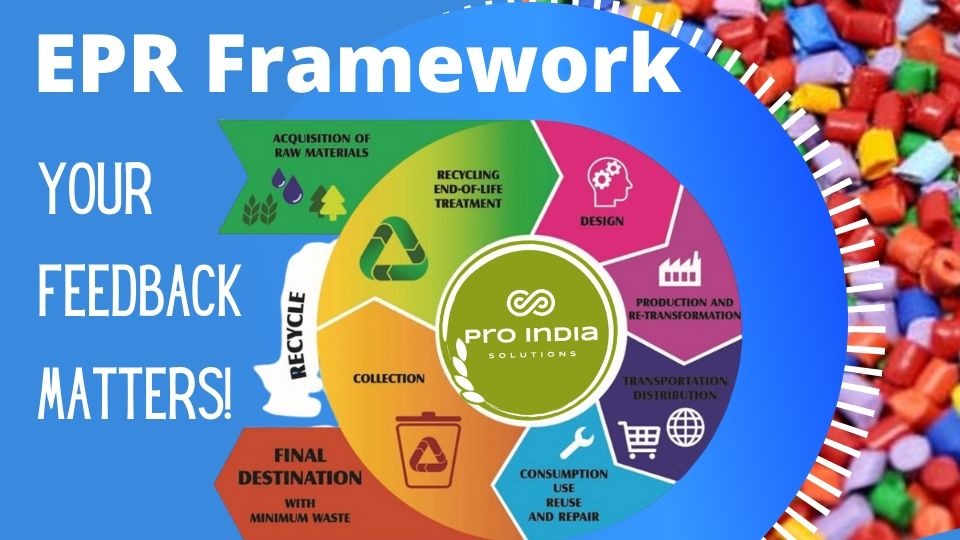MOEF notified Plastic Waste Management Rules, 2016 on 18th March, 2016. As per the Rules, the generators of waste have been mandated to take steps to minimize generation of plastic waste, not to litter the plastic waste, ensure segregated storage of waste at source and handover segregated waste to local bodies or agencies authorized by the local bodies.
“Extended Producer Responsibility” may be defined as a policy principle to promote total life cycle environmental improvements of product systems by extending the responsibilities of the manufacturer of the product to various parts of the entire life cycle of the product, and especially the take-back, recycling and final disposal of the product.
Ministry has released ( for comments ) an “Uniform Framework for EPR” on 23-Jun to detail out the methodology and functioning of EPR and roles, responsibilities of key stakeholders like Producers, Brand owners, Recyclers, Urban bodies, Waste management agencies, PROs etc. The EPR framework also covers activity and money flow between stakeholders in such a manner that provides an opportunity to reduce plastic pollution, creation of recycling/end use infrastructure & benefiting the waste-pickers which are the backbone of collection system in India which is largely informal.
[embeddoc url=”https://proindia.net/wp-content/uploads/2020/06/Final-Uniform-Framework-on-EPR-June2020-for-comments.pdf” download=”all” text=”Download EPR Framework”]
This new EPR framework may be the game changer that stakeholders were looking for. However, such a framework must be studied for its practicality towards quick implementation. Feedback must be provided to MOEF towards making the EPR framework functional for and between stakeholders. The suggestion should be incorporated for providing utmost clarity, assigning responsibility for smooth implementation of PWR 2016 & 2018.
-Amit Saha
CEO, Pro India



